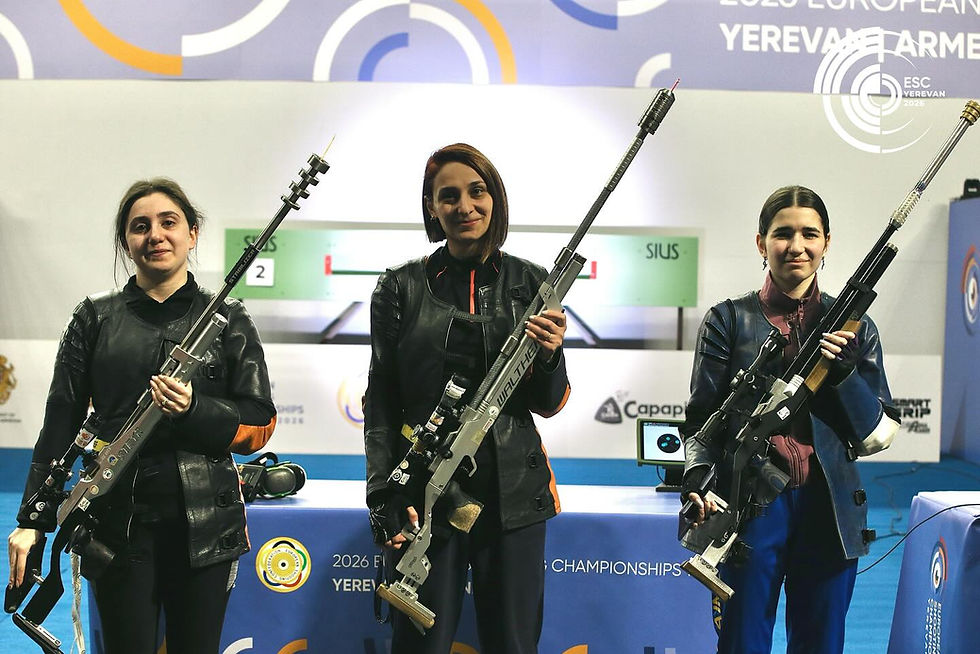Azerbaijan Using Banned Cluster Weapons Against the Civilians of Nagorno-Karabakh: Armenia’s FM
- Sep 20, 2023
- 3 min read

On September 19, Azerbaijan initiated a large-scale attack against Nagorno-Karabakh, also using banned cluster weapons. Armenia's Minister of Foreign Affairs Ararat Mirzoyan said at the extraordinary session of the UN Security Council convened at Armenia’s request on September 21 to address the situation in Nagorno-Karabakh.
"While the international community gathered here is looking for ways to maintain peace and security in the world, while we are all talking about the imperative to condemn the use of force to prevent human casualties, on September 19, Azerbaijan launched another large-scale attack against Nagorno-Karabakh, grossly violating the November 9 agreement provisions and international norms.
The entire territory of Nagorno-Karabakh, cities, and other settlements were intensively and indiscriminately bombarded with rockets, heavy artillery, combat drones and aviation, including prohibited cluster weapons. It is clear from the intensity and brutality of the attack that the intention is to end the ethnic cleansing of the population of Nagorno-Karabakh," said Mirzoyan.
Further, he said that due to the targeting of civil and critical infrastructures, the population is cut off from each other and cannot represent the situation on the ground in real time. Azerbaijani troops control the main roads of Nagorno-Karabakh, due to which it is not possible to visit and get information about the situation on the ground. As of now, the number of confirmed victims is more than 200, the number of wounded is 400, including civilians, women and children. "Today, the Ministry of Foreign Affairs of Azerbaijan also accepted that fact."
According to him, more than 10,000 people have been forcibly displaced. "They are now in the open air, without food and survival conditions. Thousands of family members are separated from each other. About 20,000 people were displaced because of the 2020 war. People continue to starve due to the 10-month blockade. The healthcare system is paralyzed. The footage from Nagorno Karabakh is really shocking. Mothers are desperately trying to find their missing children. Women cry, fearing that Azerbaijan will imprison their husbands. It is hard to believe that all this is happening not 100 years ago, but today, in front of the eyes of the international community, in the 21st century. Children who are outside and in shelters continue to cry and ask their parents to take them home, refusing to accept that they no longer have a home."
Mirzoyan said that an 8-year-old boy went missing in one of the Nagorno-Karabakh settlements during the bombing. His 10-year-old brother was killed, and it was not even possible to get his body out of the village, the other brother is injured.
"These are just some of the many cases. In the eyes of Azerbaijan, these children are terrorists, and Azerbaijan's actions were directed against these children, their mothers, grandparents. Azerbaijani social networks are flooded with calls to find missing children and women, rape them, dismember them and feed them to dogs. Azerbaijani social media users share profiles of Nagorno-Karabakh women on social media and make bets on who will rape this or that woman when they come under Azerbaijan's control," Mirzoyan said.
Mirzoyan mentioned that what happened in Nagorno Karabakh was predictable. "We raised the alarm for a long time. The international community has refused to treat all of this with enough seriousness. This was the continuation of the 10-month-long blockade, starving people. It would be naive to think that all this was not planned. When Azerbaijan closed the Lachin Corridor and we called an emergency meeting of the Security Council in December 2022, this Council did not respond adequately. When the International Court of Justice made two legally binding decisions and Azerbaijan did not respect them, this council did not respond adequately. When Azerbaijan set up an illegal checkpoint in the Lachin corridor and started abducting people, including those who are under international humanitarian law, the international community did not take adequate measures," said Ararat Mirzoyan.






Comments